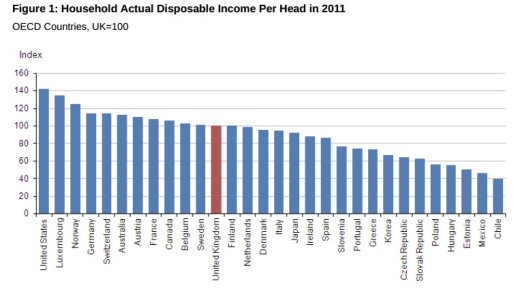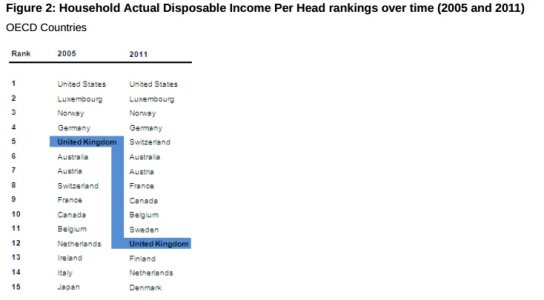Following article in New York Times touches some of the points,
.
Pakistanis Find U.S. an Easier Fit Than Britain
.
CHICAGO, Aug. 18 — The stretch of Devon Avenue in North Chicago also named for Muhammad Ali Jinnah, the founder of Pakistan, seems as if it has been transplanted directly from that country. The shops are packed with traditional wedding finery, and the spice mix in the restaurants’ kebabs is just right.
Businesses on Devon Avenue in Chicago, like an Islamic bookstore, attract a large Pakistani clientele.
Similar enclaves in Britain have been under scrutiny since they have proved to be a breeding ground for cells of terrorists, possibly including the 24 men arrested recently as suspects in a plot to blow up airliners flying out of London.
Yet Devon Avenue is in many ways different.
Although heavily Pakistani, the street is far more exposed to other cultures than are similar communities in Britain.
Indian Hindus have a significant presence along the roughly one-and-a-half-mile strip of boutiques, whose other half is named for Gandhi. What was a heavily Jewish neighborhood some 20 years ago also includes recent immigrants from Colombia, Mexico and Ukraine, among others.
“There is integration even when you have an enclave,” said Nizam Arain, 32, a lawyer of Pakistani descent who was born and raised in Chicago. “You don’t have the same siege mentality.”
Even so, members of the Pakistani immigrant community here find themselves joining the speculation as to whether sinister plots could be hatched in places like Devon (pronounced deh-VAHN) Avenue.
The most common response is no, at least not now, because of differences that have made Pakistanis in the United States far better off economically and more assimilated culturally than their counterparts in Britain. But some Pakistani-Americans do not rule out the possibility, given how little is understood about the exact tipping point that pushes angry young Muslim men to accept an ideology that endorses suicide and mass murder.
The idea of a relatively smaller, more prosperous, more striving immigrant community inoculating against terror cells goes only so far, they say.
“It makes it sound like it couldn’t happen here because we are the good immigrants: hard-working, close-knit, educated,” said Junaid Rana, an assistant professor of Asian-American studies at the University of Illinois at Urbana-Champaign and an American-born son of Pakistani immigrants. “But we are talking about a cult mind-set, how a cult does its brainwashing.”
Yet one
major difference between the United States and Britain, some say, is the United States’ historical ideal of being a melting-pot meritocracy.
“
You can keep the flavor of your ethnicity, but you are expected to become an American,” said Omer Mozaffar, 34, a Pakistani-American raised here who is working toward a doctorate in Islamic studies at the University of Chicago.
Britain remains far more rigid. In the United States, for example, Pakistani physicians are more likely to lead departments at hospitals or universities than they are in Britain, said Dr. Tariq H. Butt, a 52-year-old family physician who arrived in the United States 25 years ago for his residency.
Nationwide, Pakistanis appear to be prospering. The census calculated that mean household income in the United States in 2002 was $57,852 annually, while that for Asian households, which includes Pakistanis, was $70,047. By contrast, about one-fifth of young British-born Muslims are jobless, and many subsist on welfare.
Hard numbers on how many people of Pakistani descent live in the United States do not exist, but a forthcoming book from Harvard University Press on charitable donations among Pakistani-Americans, “Portrait of a Giving Community,” puts the number around 500,000, with some 35 percent or more of them in the New York metropolitan area. Chicago has fewer than 100,000, while other significant clusters exist in California, Texas and Washington, D.C.
Pakistani immigration to the United States surged after laws in the 1960’s made it easier for Asians to enter the country.
Most were drawn by jobs in academia, medicine and engineering. It was only in the late 1980’s and 90’s that Pakistanis arrived to work blue-collar jobs as taxi drivers or shopkeepers, said Adil Najam, the author of the book on donations and an international relations professor at the Fletcher School of Law and Diplomacy at Tufts University.
In Britain, by comparison, the first Pakistanis arrived after World War II to work in factories. Many were fleeing sectarian strife in Kashmir — a lingering source of resentment — and entire communities picked up and resettled together. This created Pakistani ghettos in cities like Bradford and Birmingham, whereas in the United States immigrants tended to be scattered and newcomers forced to assimilate. The trends intensified with time.
A decade ago, for example, a Pakistani in Chicago who wanted to buy halal meat, from animals butchered in a religiously sanctioned manner, could find it only on Devon Avenue. Now halal butchers dot the city and its suburbs.
Thousands of immigrants and their American-born offspring still flock to Devon Avenue because of its restaurants and traditional goods, including wedding saris for women and long, elaborate shirts and gilded slippers with curled toes for men. The avenue’s half-dozen rudimentary mosques have a reputation for being more conservative than those elsewhere in Chicago, with the imams emphasizing an adherence to Muslim tradition.
“They go to an area where they have a feeling of nostalgia, and even psychologically it is important for immigrant communities to feel that their home country is represented,” said Dr. Butt, an early member of the Association of Physicians of Pakistani Descent of North America, one of the oldest immigrant organizations here.
But immigrants are not mired in the Devon Avenue neighborhood; many move out once they can afford better.
Unlike the situation in Britain, there is no collective history here of frustrated efforts to assimilate into a society where a shortened form of Pakistani is a stinging slur, and there are no centuries-old grievances nursed from British colonial rule over what became Pakistan.
Where such comparisons fail, however, is in providing a model to predict why some young Muslims turn to violence, although no religion is immune. In the United States there have been a few cases of young Pakistani men being arrested or tried in terror plots, in Atlanta and in Lodi, Calif., for example.
Ifti Nasim, a former luxury car salesman turned poet and gay rights advocate, greets a visitor with a slim volume of his works. The cover photograph shows him wearing a bright orange dress, ropes of pearls and a long blond wig. He has been in the United States since 1971.
Some shoppers crowding the sidewalks on Devon Avenue greet Mr. Nasim warmly, telling him they listen to his radio show or read his columns in a local Urdu-language newspaper. In Pakistan, Mr. Nasim says, his flamboyance would not be tolerated, but here he calls his acceptance “the litmus test of the society.”
Like many, however, he has moments of doubt, saying, “Pakistani society in Chicago has made a smooth transition so far, but you never know.”
A more important factor in determining who becomes a militant is most likely the feeling of being stigmatized as less than equal, community activists say, noting that such discrimination remains far more common in Britain. It is probably compounded by the fact that violence against Muslims in Iraq, Afghanistan, Palestine and Lebanon feels so much closer there, they say.
Overt bigotry is rarer here, but it exists. For instance, Mohamed Hanis, a taxi driver who is a Pakistani immigrant, said that on the Friday night after the terror alert in London, a young white man climbed into his cab. Noticing the name Mohamed, the man threatened to report that Mr. Hanis had admitted to supporting terrorist attacks unless he could get a free ride. Instead, Mr. Hanis hailed a police officer who forced the passenger to pay.
Mr. Mozaffar, the University of Chicago student, said he had grown up with revered Muslim role models like Muhammad Ali and Kareem Abdul-Jabar, but now there were none. He teaches religion classes for young Muslims, and the question inevitably arises whether the creed justifies using violence for political or religious aims. He emphasizes that Islam forbids killing innocent civilians, and community members here have said they will not tolerate a mosque prayer leader advocating violence.
Initial reports about the British suspects quoted neighbors as saying that some of the men had become more religious, adopting Islamic dress and praying five times a day. That kind of transformation happens in Chicago, too, but the idea that any such change should automatically arouse suspicion rather than be considered teenage rebellion or a religious conversion makes community activists bridle.
For the past eight years, Abdul Qadeer Sheikh, 46, has managed Islamic Books N Things on Devon Avenue, which sells items like Korans, prayer rugs and Arabic alphabet books. He says that since Sept. 11, he has seen signs of the bias that has existed in Britain for decades developing here. He describes a distinctive fear of being seen as Muslim, even along Devon Avenue. Before, a good 70 percent of the women who came into his shop were veiled, he said. Now the reverse is true, and far fewer men wear traditional clothes.
The attitude of the American government in adopting terms like “Islamic fascists” and deporting large numbers of immigrants, he said, makes Muslims feel marked, as if they do not belong here. “The society in the United States is much fairer to foreigners than anywhere else,” he said, “but that mood is changing.”
http://www.nytimes.com/2006/08/21/u...r=0&adxnnlx=1362153620-dt4dSb0/Ho eFwZqIWBdMg
-------------------------
I will say that there are 3 major reasons.
- Two countries have a different culture when it comes to immigrants.
- The first generation of American Pakistanis were more skilled than British Pakistanis.
- Then USA and Britain are not comparable in economic opportunities. Apart from economic size, Britain would have been the poorest state in US if Britain was a state of USA.











